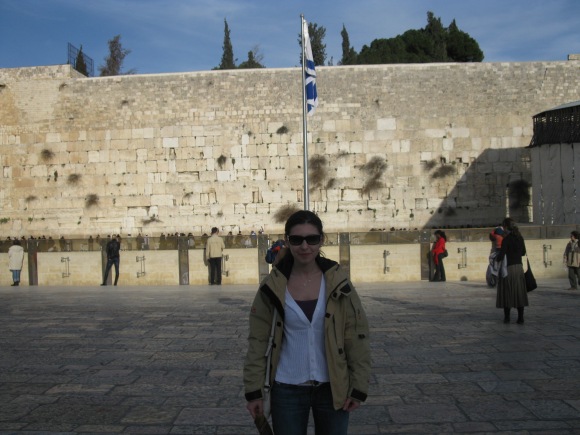I mentioned visiting the Kotel, or the Western Wall, in my last post, so I wanted to expound on that experience a bit. This was about a year and a half ago toward the end of my two-week trip to Israel, and before I made a commitment to officially convert, though I was already observing some of the traditions and holidays.
Visiting and praying at the Wall was actually a very profound and spiritual experience for me. It was the plainness and simplicity of it, in stark contrast to the fancy churches I had grown disillusioned with, that allowed me to really connect with the moment and concentrate on what I wanted to convey in my prayers to God. I didn’t know any Jewish prayers yet at that point so I just spoke silently in my own words. It was an emotional experience and I even cried a little when I thought about some of my past ungratefulness towards God’s love and all the second chances I’ve gotten in life.
Before this visit I had viewed Judaism and my attraction to it as primarily a matter of culture and ethnic identity. But connecting with God in this holy spot caused me to start seeing Judaism as also a religion and system of spirituality, and I suppose this is what led me to eventually want to convert in a synagogue as opposed to simply adopting the culture and traditions.
The trip itinerary took us to the Kotel right after Yad Vashem, the Holocaust Museum in Jerusalem, which I thought was fitting and added another interpretation to my visit to the Wall. I saw this giant Wall, which survived the destruction of our Temple and is our holiest place on earth, as a symbol of the survival of the Jewish nation. They tried to destroy us, but we stand tall and strong like this Wall.
Right before my group went up to the Kotel, our tour guide said to us: “No matter what you believe in, whether you like it or not, this is your place, and no one can take it away from you.”
I’ll have to talk more about my trip to Israel in future posts.

